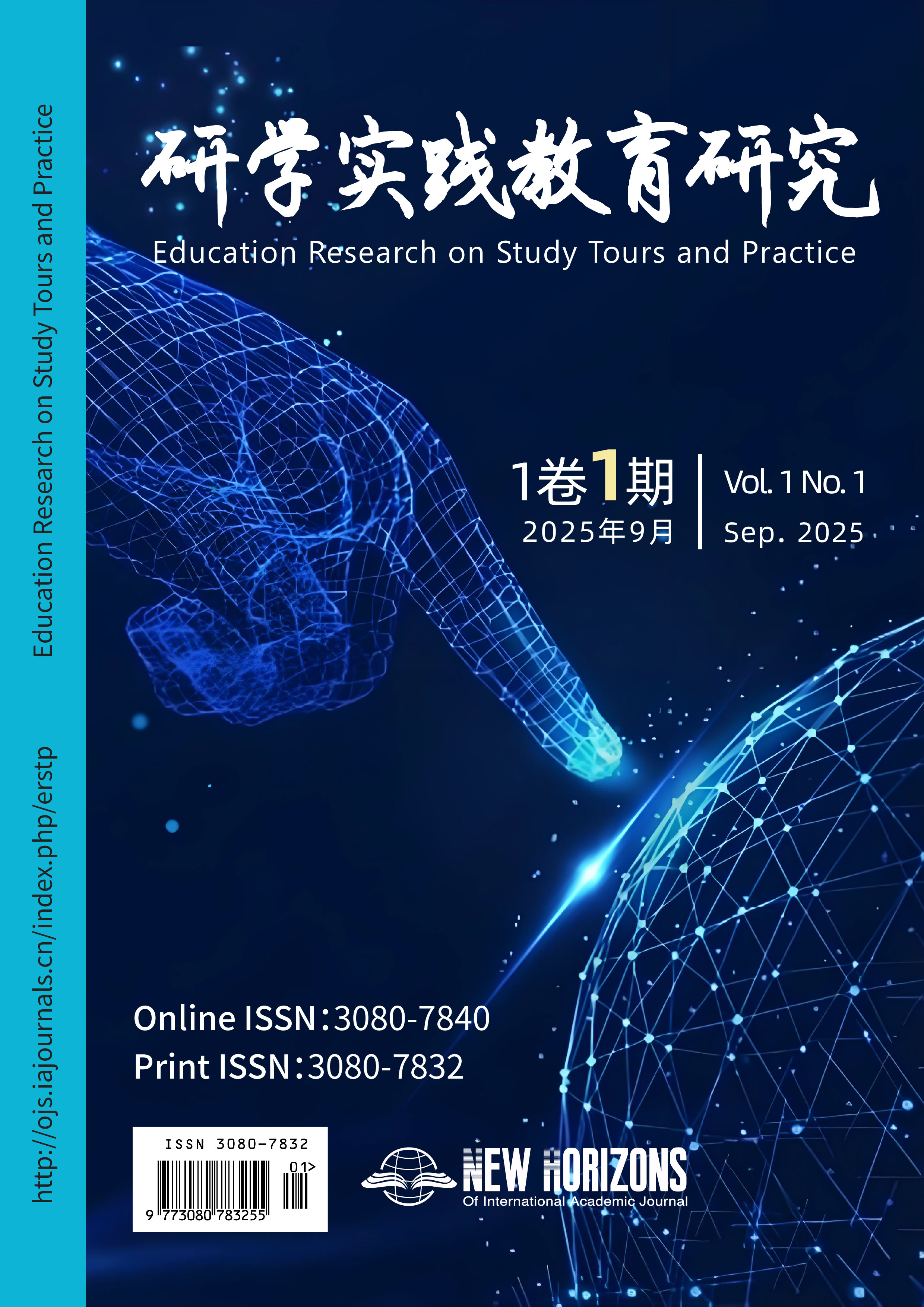[1] Burns T W, O'Connor D J, Stocklmayer S M. Science communication: a contemporary definition[J]. Public understanding of science, 2003, 12(2): 183-202.
[2] 翟杰全. 科学传播学:一个亟待开拓的研究领域[J]. 未来与发展, 1990, 05): 34-7+50.
[3] Ho S S, Yang X, Thanwarani A, et al. Examining public acquisition of science knowledge from social media in Singapore: An extension of the cognitive mediation model[J]. Asian Journal of Communication, 2017, 27(2): 193-212.
[4] Stocklmayer S M, Rennie L J, Gilbert J K. The roles of the formal and informal sectors in the provision of effective science education [J]. Studies in science education, 2010, 46(1): 1-44.
[5] Anderson D, Lucas K B, Ginns I S, et al. Development of knowledge about electricity and magnetism during a visit to a science museum and related post‐visit activities[J]. Science Education, 2000, 84(5): 658-79.
[6] Maarschalk J. Scientific literacy through informal science teaching[J]. European Journal of Science Education, 1986, 8(4): 353-60.
[7] 李福鹏, 姜萍. 科学传播中科学家缺席的原因探析——以“蕉癌”事件为例[J]. 自然辩证法研究, 2009, 25(06): 61-4.
[8] Bentley P, Kyvik S. Academic staff and public communication: a survey of popular science publishing across 13 countries[J]. Public understanding of science, 2011, 20(1): 48-63.
[9] 翟杰全, 聂晓霞. 科技公共传播:多元参与和科学家的责任[J]. 科技导报, 2006, 02): 87-9.
[10] Besley J C, Dudo A, Yuan S, et al. Understanding scientists' willingness to engage[J]. Science communication, 2018, 40(5): 559-90.
[11] Willems J. Bringing down the barriers[J]. Nature, 2003, 422(6931): 470-.
[12] Dudo A, Kahlor L, AbiGhannam N, et al. An analysis of nanoscientists as public communicators[J]. Nature nanotechnology, 2014, 9(10): 841-4.
[13] Ho S, Yang X, Liao Y, et al. A survey of public views and attitudes towards science and technology issues in Singapore[J]. Asian Scientists, 2015, 1-20.
[14] 王大鹏, 黄荣丽, 陈玲. 新时代科学家参与科普的现状与路径思考[J]. 中国科学院院刊, 2024, 39(11): 1994-2004.
[15] 宋同舟. 科研机构新媒体科学传播工作效果评价研究——以中国科学院为例[J]. 新媒体研究, 2021, 7(15): 1-5.
[16] 罗佳. 我国科普网站传播效果研究[D], 2013.
[17] 王珂. 科学传播视角下科普微博的媒介呈现与传播效果研究[D], 2020.
[18] 赵东平, 高宏斌, 赵立新. 中国科普人才发展存在的问题与对策[J]. 科技导报, 2020, 38(05): 92-8.
[19] 刘萱, 李心愉. 科研团队参与科普的模式与实现路径——国家重点实验室参与科普的案例研究[J]. 科普研究, 2017, 12(06): 16-24+39+105.
[20] 刘晓程, 赵玉琴. 多维诉求:一线科研人员的科学传播认知调查[J]. 科普研究, 2020, 15(05): 57-64+109.
[21] 赵玉琴. 科普、推广与宣传:一线科研人员的科学传播观念调查[J]. 科技传播, 2023, 15(07): 20-22.
[22] Deci E L, Ryan R M. The general causality orientations scale: Self-determination in personality[J]. Journal of research in personality, 1985, 19(2): 109-34.
[23] Joubert C. M. M. Factors influencing the public communication behaviour of publicly visible scientists in South Africa[D]; Stellenbosch: Stellenbosch University, 2018.
[24] 王姝, 李大光. 科学家对自身参与科学传播活动看法的调查研究[J]. 科普研究, 2010, 5(03): 68-73.
[25] Jensen P, Rouquier J-B, Kreimer P, et al. Scientists who engage with society perform better academically[J]. Science and public policy, 2008, 35(7): 527-41.
[26] Andrews E, Weaver A, Hanley D, et al. Scientists and public outreach: Participation, motivations, and impediments[J]. Journal of geoscience education, 2005, 53(3): 281-93.
[27] Kim C, Fortner R W. Great lakes scientists’ perspectives on K-12 education collaboration[J]. Journal of Great Lakes Research, 2008, 34(1): 98-108.
[28] Shanley P, López C. Out of the loop: why research rarely reaches policy makers and the public and what can be done[J]. Biotropica, 2009, 41(5): 535-44.
[29] Woitowich N C, Hunt G C, Muhammad L N, et al. Assessing motivations and barriers to science outreach within academic science research settings: A mixed-methods survey[J]. Frontiers in Communication, 2022, 7: 907762.
[30] McCann B M, Cramer C B, Taylor L G. Assessing the impact of education and outreach activities on research scientists[J]. Journal of Higher Education Outreach and Engagement, 2015, 19(1): 65-78.
[31] Poliakoff E, Webb T L. What factors predict scientists' intentions to participate in public engagement of science activities?[J]. Science communication, 2007, 29(2): 242-63.
 研学实践教育研究 新进展
研学实践教育研究 新进展
 PDF (Chinese)
PDF (Chinese)
